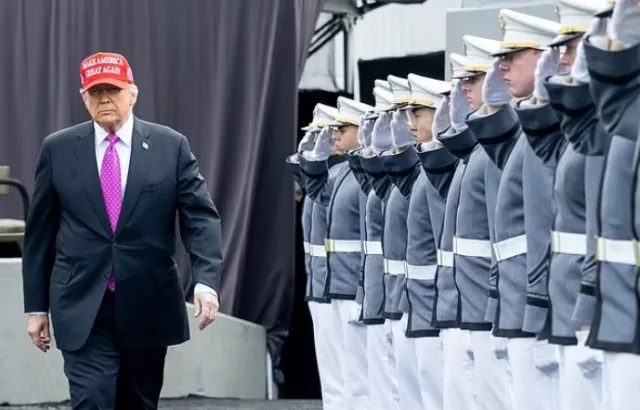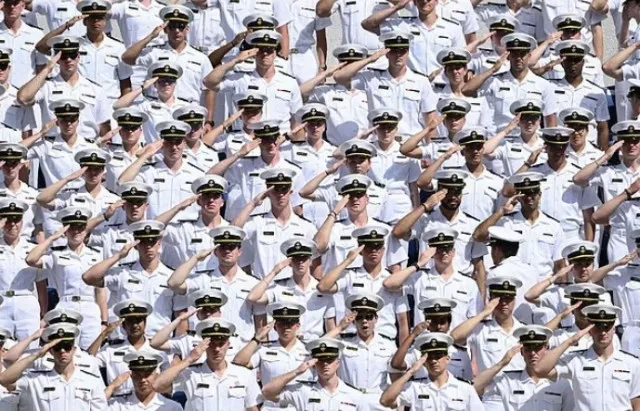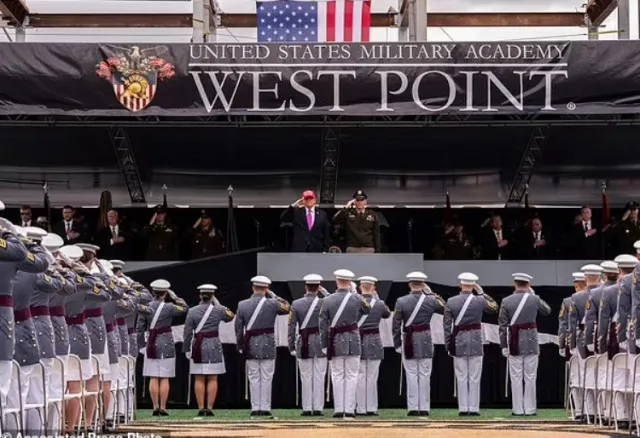Top military academies face backlash after reports allege secret underground efforts aimed at undermining President Trump’s official orders.
Elite U.S. military academies face backlash as faculty and students secretly challenge Trump’s new academic restrictions.
The backlash erupted after reports confirmed staff at institutions like the U.S. Naval Academy used non-governmental communication channels.
They relied on these private platforms to discuss topics now banned under Trump administration policies.

Among the prohibited subjects are critical race theory and discussions on structural inequality.
Many educators argue that these topics are essential for a well-rounded military education.
The administration has also introduced AI-based monitoring of academic work to flag sensitive words like “barrier,” “Black,” “allyship,” and even “The Gulf of Mexico.”
Professors criticize curriculum restrictions as politically motivated
Faculty members argue the new limitations hinder their ability to properly prepare future military leaders.
An anonymous Naval Academy professor told the Washington Post omitting key insights harms the institution’s mission.
“We are here to equip young officers with a deep understanding of global dynamics. By censoring truth and pushing ideological narratives, we compromise their ability to lead,” the professor said.

Under the new directives, instructors must teach that “America and its founding documents remain the most powerful force for good in human history.”
Critics argue this simplifies history and ignores the nation’s complex social legacy.
Students and faculty express moral and ethical concerns
Cadets face growing tension over serving under policies they view as morally unjust.
Some professors advised students to serve honorably while watching for unethical or illegal orders.
“If that moment comes, you should reject the order rather than compromise your values,” one faculty member reportedly told cadets.
This climate of unease has contributed to a wave of resignations among senior educators.
Graham Parsons, a former West Point philosophy professor, recently stepped down, citing irreconcilable differences with the academy’s new direction.

Former professor resigns and writes a critical essay
Parsons wrote a New York Times op-ed condemning military education politicization.
He wrote, “I cannot tolerate these changes, which prevent me from doing my job responsibly. I am ashamed to be associated with the academy in its current form.”
He criticized the removal of diversity, equity, and inclusion (DEI) initiatives.
He noted that acknowledging systemic racism and sexism in the military is now unacceptable.
“It feels like whiplash,” Parsons said. “Just a year ago, these were valid concerns. Now they are taboo.”
Trump reaffirms agenda during West Point commencement speech
At West Point’s recent graduation, President Trump reaffirmed his education policies.
He promised to end DEI programs and remove “social distractions” from military training.

He said: ‘We´re getting rid of distractions and we’re focusing our military on its core mission: crushing America’s adversaries, killing America’s enemies and defending our great American flag like it has never been defended before.
“The job of the U.S. armed forces is not to host drag shows or transform foreign cultures,” Trump declared, referencing events that had previously been allowed under the Biden administration.
He called this a crucial moment and condemned past leaders for overseas nation-building.
Trump also reiterated his opposition to critical race theory, transgender inclusion, and other reforms he believes have politicized the military.